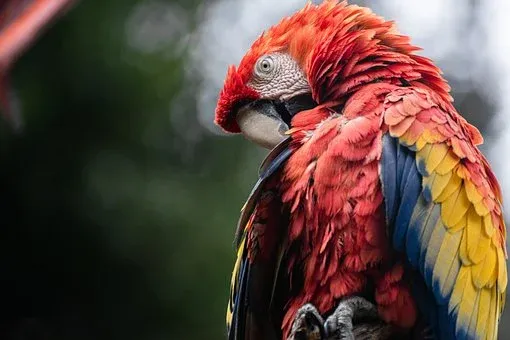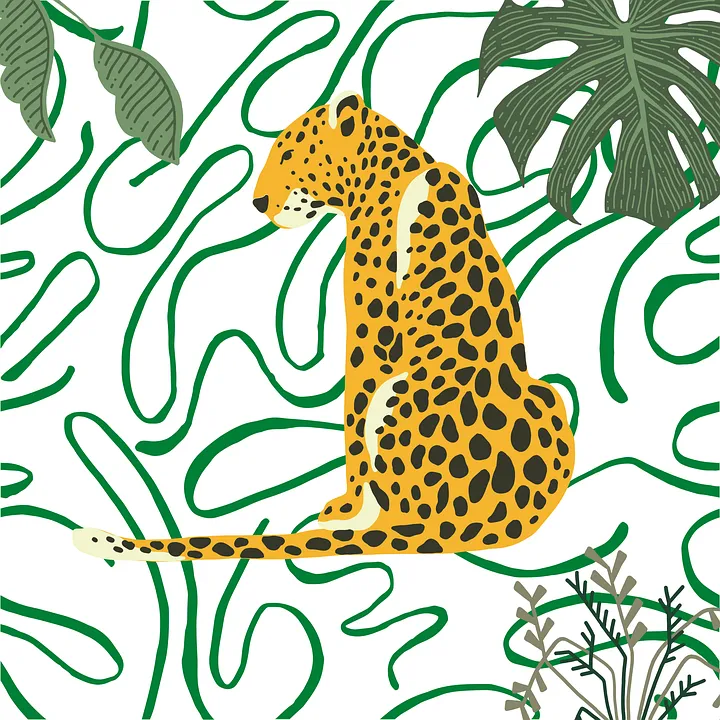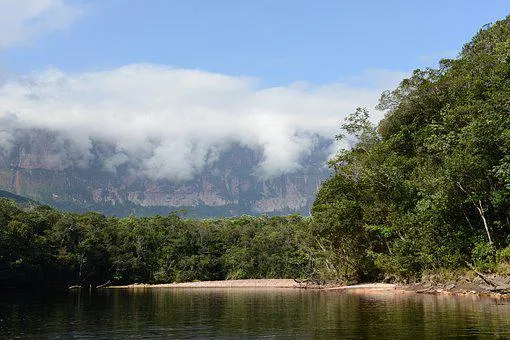 source
sourceSouth of the Orinoco River inhabit the Yanomami, human beings adapted to live in the jungle, a place that for other people could be dangerous and inhospitable, but for them it has been their home for thousands of years. They are connected to nature and are part of it.
The pijiguao ceremony will be held in the village and the abundant palm fruits are already being harvested, which will serve as food for the village and as gifts to other neighboring villages that have been invited to gather and share with them.
In the main shabono the inhabitants of the jungle begin to gather, with their bodies painted in ocher and red, the men with their heads adorned with feathers and the women with flowers, leaves and bamboo sticks through their noses and mouths. Men and women sit around the large bonfire, while the children play and the hosts begin to distribute the food prepared especially for the ceremony, including plantain soup, roasted sweet yucca, fish and boiled pijiguao fruits.
After eating, a hallucinogenic drink, is distributed. The Yanomami dance and sing to the rhythm of the flute. The movements are faster and faster.
The young shaman sits with the elders and inhales the yopo powder through his nose and begins his communication with the spirits of the ancestors. The hekuras, spirits of animals and plants of the jungle, manifest themselves.
The jaguar hekura, strong and quick, tells him that something very serious is about to happen in the jungle.
 source
sourceThe monkey hekura warns him that the men from the other side of the river will come and with them destruction. The river will turn as red as blood and will bring death wherever it goes.
―And what are the men coming for? ―asks the shaman.
―They come for the gold, as they did many years ago, and this time they will destroy everything.
―And what can we do?
The hekura of the moriche comes forward and tells the shaman
―You have two choices: fight or flee, your people have to decide.
The spirits retreat and the night ends and with it the celebration. Each village must return to their homes up the river in curiaras. But the voice of the shaman interrupts the shabono and tells them all that the hekuras have told him.
―The jungle is in danger and we have to decide what to do.
The faces, tired from the night of celebration, are amazed by what they are hearing. Some begin to speak their minds.
―We are going to confront them, we cannot allow them to destroy our jungle,―says the oldest.
―But it is dangerous, they will surely come armed, many will die, ―a young man replies.
―We will have to flee, let's look for another place away from the river, ―exclaims a woman.
After listening to the comments, the villages must make a decision and for this the shamans and elders meet.
― The important thing is to know when they will arrive, we must send messengers to the north to find out. And in the meantime we organize ourselves for the war. We are not going to run away, ― says the young shaman.
This decision was communicated to all the people, who returned to their territories to wait for news, they go crestfallen in their curiaras furrowing the river, listening to the cry of the araguatos and the macaws that fly by with their red, blue, green and yellow colors. The women with their small children in their arms, the men and young men paddling with their arms strong and coppery like the wood of the big trees.
The days go by in the depths of the jungle and the rain makes it even more impenetrable.
Messengers arrive with news. The men have set up camp north of the Caroni River. They have guns and there are almost 100 people. They have very large machines that draw water from the river.
The news reaches all the villages in the region. They are preparing for the fight. The women and children are taken to an area protected by the spirits of their ancestors. It is the sierra, further south, the oldest area on the planet.
 source
sourceThe Yanomami with their bodies painted black, accompanied by the spirits of the jungle, go to confront the enemy, to defend their territory. They are going to keep what they have conquered by right, respecting every living being, every rock, every hill and water course. The moon, the rain and the wind that pushes their curiaras accompany them.
In the regional press, a journalist who denounces what is happening, writes in her report.
During the Spanish conquest of the American lands, the legend of El Dorado, the city of gold beyond the Orinoco River, in the Amazon, was the reason why men went into that unexplored territory, greedily searching for the golden mineral. They did not find it and the jungle swallowed them never to return and that mystery was lost in time. Was there really a golden city or was it just an invented story?
Unfortunately, south of the Orinoco River, gold deposits exist and continue to attract men today. They have already arrived, have settled on the banks of the rivers, and are altering the delicate balance of the jungle and the great savannah. Mining is one of the most polluting and destructive human activities on the planet, there is no such thing as ecological mining.
The Yanomami are one of the indigenous groups that inhabit these lands. Their struggle for survival has begun. Hopefully the spirits of the jungle will help them stop the destruction of what nature created over millions of years.


Translated with www.DeepL.com/Translator (free version)
